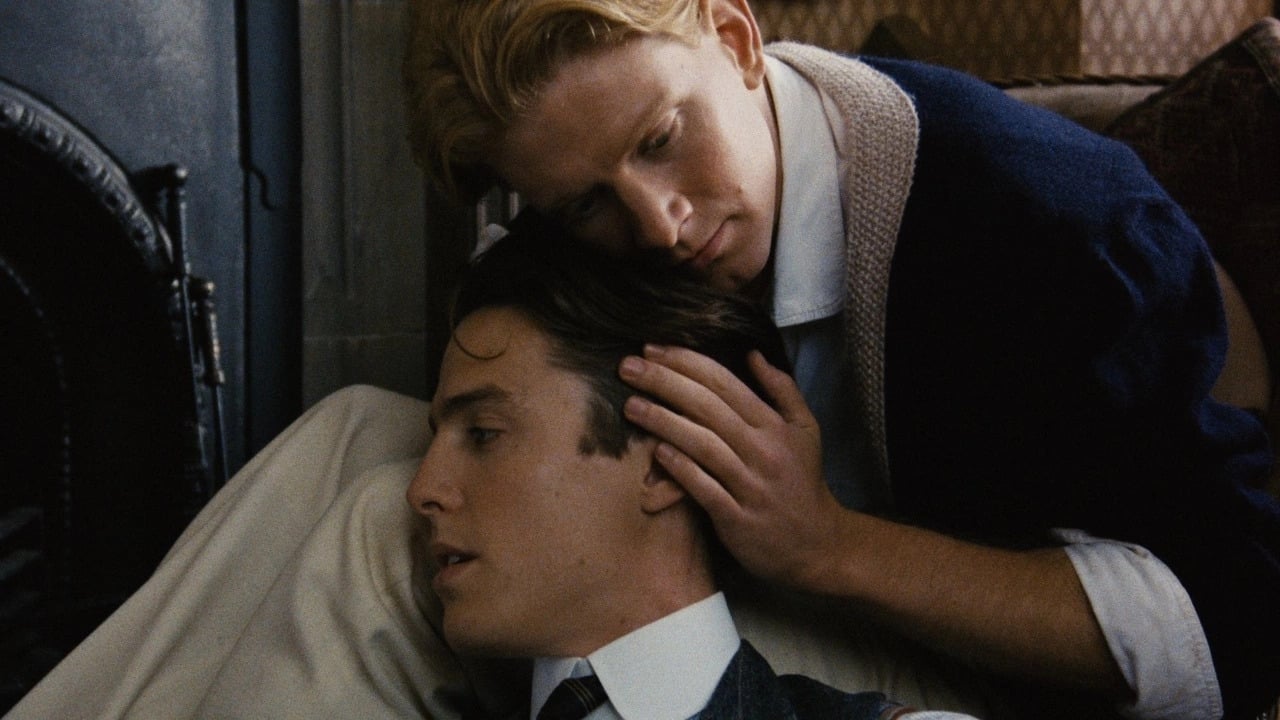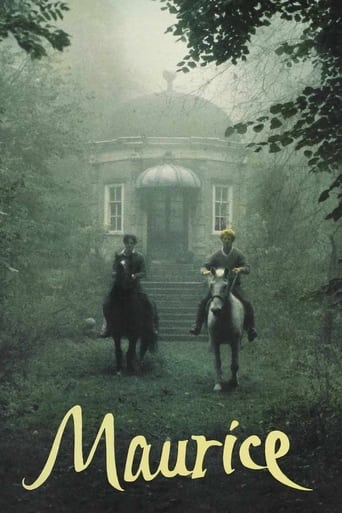

Truly Dreadful Film
... View Moreeverything you have heard about this movie is true.
... View MoreThere are moments that feel comical, some horrific, and some downright inspiring but the tonal shifts hardly matter as the end results come to a film that's perfect for this time.
... View MoreEasily the biggest piece of Right wing non sense propaganda I ever saw.
... View MoreI came upon this movie about six months ago because I am a fan of Rupert Graves (Alec Scudder). I watched the movie online and immediately fell in love with all of the characters. I think they are truly relatable, even Clive can be understood and isn't necessarily the "bad guy." Scudder and Maurice have a surprisingly sweet romance that brings about thoughts of true love; that they can set aside their differences and accept each other is heart warming in its purity and sincerity. I have since read the book, and it has become one of my favorite pieces of literature. It is not only a dynamic and deep plot in its own right, but is visually beautiful and keeps ones attention. I suggest the movie/book to all of my friends who want something different to watch/read!
... View MoreWhile I liked the first half of Maurice, I absolutely sat up with the second portion. If you can make it through the pompous, arrogant and snotty people of the first hour, you're in for a great all-around coming out story.Here's another movie I watched consistently when I was in my young, gay, formable years. Maybe once every 2-3 months. It's slow, yes. It's a period piece film, sure. And it's hard to get through at times but if you can stick through to the end – hell, the second half, it's well worth it.Maybe because, when I was younger, I fell in love with Rupert Graves, due to this movie. Now, I liked his character in this movie, Alec Scudder, but physically Again, this was in my impressionable years when I first started watching this. I even wanted to name my child – if I ever had one: Alec. Love(d) that name.I digress, as I normally do. The movie is set in England, the early 1910s. It's based on an E.M. Forster (of A Room with a View fame) book that was set to be released only after Forster was deceased. (I read this book, by the way and loved it.) Poor Morris (James Wilby and that's how it was pronounced back then;) in his own formable years in "college," he meets Hugh Grant's Clive Durham and they build a solid love affair in a time when someone caught doing homosexual acts could be imprisoned. Mercifully, England, unlike their child, the great U.S. of A., has turned it around since then. In fact, recently, they allow same-sex marriages. Kudos to them for being so advanced!Meanwhile, when another colleague of theirs is, in fact, imprisoned, Clive retreats and wrongfully marries a woman and ditches Maurice. He's distraught, definitely confused and seeks out "change" when he meets the man (of my own dreams following) who will prove to him: NOTHING IS WRONG.This movie helped me through a lot back then. Sure, at the time I first discovered it, it was set in a time eight decades prior, and in another country, but it was absolutely relevant to me and my own story. For, I didn't come out until gays finally started to earn the slightest of respect, in the early 1990s. Me, like Maurice, both didn't understand what was happening to us. No one told me what to expect, if there were others out there like me or if I was right or wrong.Remember: this was all pre-internet.This movie was well-made, had a great score and watching it from beginning to end, it's very touching and reminds me, with every viewing, of my youth. I'm glad I saw it back then, and look forward to seeing it again.
... View MoreGrowing up gay in puritan England circa 1920 could be a very dangerous enterprise, as two young college students discover in this adaptation of E.M. Forster's suppressed, confessional novel. Of course by now it's no secret how the cloistered male community and heady, highbrow atmosphere of England's best public schools drew out "the unspeakable vice of the ancient Greeks" from much of the country's youth, but this isn't the usual timid introduction to homosexual love. Beneath the typically lush Old World settings and handsome period décor is a challenging story of one (sadly, rather bland) young man caught between the law and his libido. Platonic lover Hugh Grant has a much more interesting character; unfortunately, he all but disappears from the script after being frightened by the threat of exposure into a dull heterosexual marriage. It's up to Maurice (pronounced Morris) to carry the torch, in more ways than one, and his coming to terms with an errant (by British law) sexuality is conveyed with literate sympathy.
... View MoreThis film is about a upper class English gentleman called Maurice, and his quest to find the love of his life beyond the societal constraints of Britain in early 1900's.Though the pacing of "Maurice" is very slow, it successfully engages the viewers and hence never feels boring. The main characters, Maurice Hall and Clive Durham are very well developed. Their words, emotions and actions are beautifully portrayed in much detail that I feel close to them. Maurice Hall's immense dedication to find love in Clive is intense, but their love does not come to fruition due to oppressive societal pressure. Though Maurice finally finds solace in Alec, the ending is bittersweet.
... View More